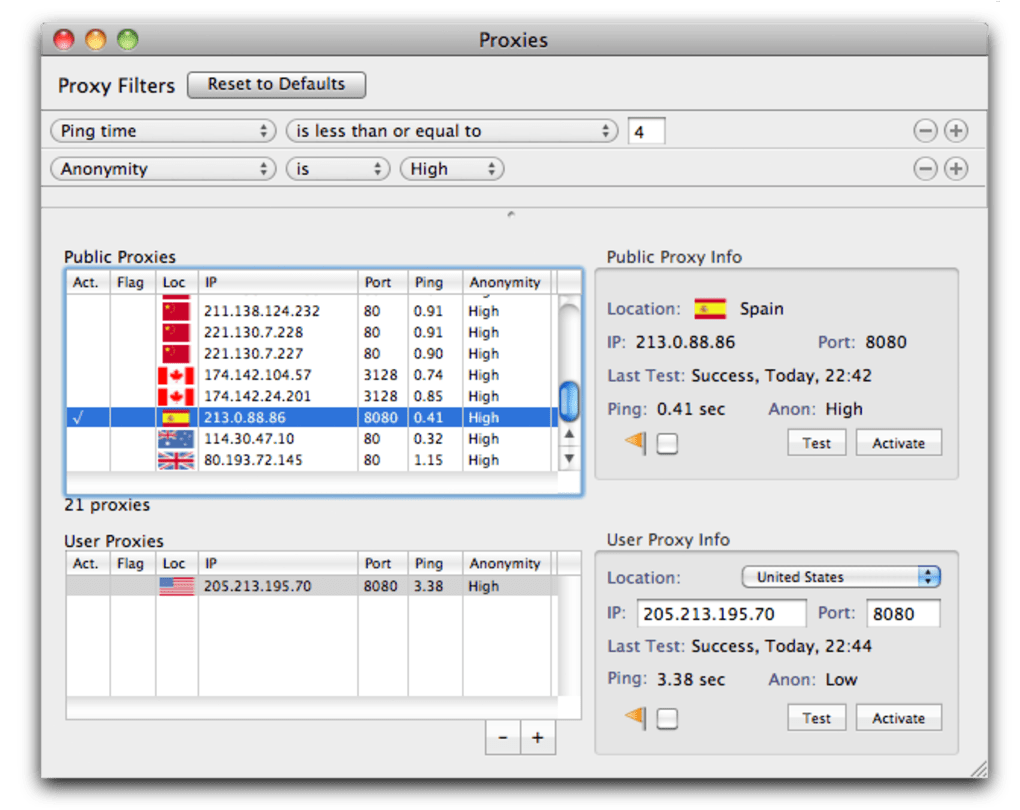
Hotspot Torrent Mac
AnchorFree's is the commercial edition of the company's hugely ad-sponsored service. Paying to upgrade will get rid of the ads and give you unlimited data transfer and full access to Hotspot Shield's locations and features. That means you're able to choose from more than 2,500 servers in 27 countries. We've seen larger networks, but Hotspot Shield does spread its locations more widely than some, with options including Australia, Brazil, China, India, Israel, Japan, Korea, Mexico, New Zealand, Pakistan and Russia, as well as North America and Europe. Word 2016 formatting marks. • Want to try Hotspot Shield Premium? There's app support for all the main platforms - Windows, Android, iOS, Mac - but as Hotspot Shield now only uses its own proprietary Catapult Hydra protocol, there's no way to set it up manually on routers or other platforms. You must use one of the apps.
Sep 13, 2016 - Learn how to choose a VPN for torrents, which services to avoid, and the. VPN software that runs on all major platforms (Windows, Mac, and mobile). Not only does Hotspot shield keep metadata connection logs, but they.
You can at least use a bunch of your devices at once, as Hotspot Shield Premium supports up to 5 simultaneous connections. That's better than ExpressVPN's 3 connection limit, although if you really need more, IPVanish allows up to 10.
All the available servers are P2P-friendly, and with no bandwidth limits, you're able to browse, stream or download as much as you like. Plans and pricing. Hotspot Shield Premium is more expensive than most VPNs, but does at least give you plenty of options, with no less than four plans. A costs $12.99, slightly higher than a premium VPN such as (at $12.95), and Private Internet Access' monthly plan is less than half the price at $6.95 (£5.35). Opting for the drops the price to $8.99 a month,while cuts it to a very competitive $2.99 per month. But you can still get slightly better deals elsewhere; for example, the Private Internet Access 2-year plan costs a monthly $2.91. The company doesn't support Bitcoin, but you can pay via cards, PayPal and assorted other systems (Alipay, Giropay, WebMoney, Yandex and more.) Sign up for a Premium account and although you're asked for your payment details, you're not billed for the first 7 days.
Cancel within that time and there's nothing to pay, and even if you hand over the cash, you're still protected by a generous 45-day money-back guarantee. (Most providers stop at 30 days, and Private Internet Access only gives you 7.) Privacy Understanding a VPN's security usually starts by looking at its protocol support, encryption and authentication details. This can be hugely complicated, but just seeing that a service supports a secure protocol like OpenVPN can give you reassuring feedback about its safety. Hotspot Shield is more difficult to assess, because it doesn't support OpenVPN, or IKEv2, or L2TP/ IPSec, or any of the other standard VPN protocols. Instead it uses its own proprietary Catapult Hydra technology. This isn't as worrying as it might sound. Catapult Hydra's focus is on improving performance, and the encryption side of the protocol uses much the same standards as everyone else.
For example, the that Catapult Hydra is based on TLS (Transport Layer Security] 1.2, with AES-128 encryption, 2048-bit RSA certificates for server authentication and keys exchanged via Elliptic Curve Diffie-Hellman (ECDHE) for perfect forward secrecy (keys last for only one session, with new ones generated next time.) One problem with proprietary technologies like Catapult Hydra is there's no easy way to see what else is going on. OpenVPN is open source and any developer can look at the code, figure out how it works, perhaps find problems or suggest improvements, something which isn't possible here. That doesn't mean you must take Hotspot Shield's claims entirely on trust, though. The company points out that Catapult Hydra is used by 'the majority of large cybersecurity companies that offer VPN services from within their apps, such as McAfee, Bitdefender, Cheetah Mobile and many others.'
In addition, 'carriers such as Telefonica and KDDI also use Catapult Hydra to provide VPN services and Wi-Fi security to their customers.' As a result, though the code isn't publicly available, that doesn't mean its functionality hasn't been reviewed. These corporate customers need to understand Catapult Hydra to properly implement it themselves, and Hotspot Shield says the protocol has been 'evaluated by 3rd party security experts from more than 60% of the world’s largest security companies that use our SDK to provide VPN services to their users.' Privacy isn't just about the low-level technicalities. Client implementation is also important, especially when it comes to blocking DNS and WebRTC leaks which might give away your real identity. Fortunately, testing Hotspot Shield's clients and browser attachments at ipleak.net and dnsleaktest.com didn't reveal any issues, with the service protecting us from snoopers at all times.